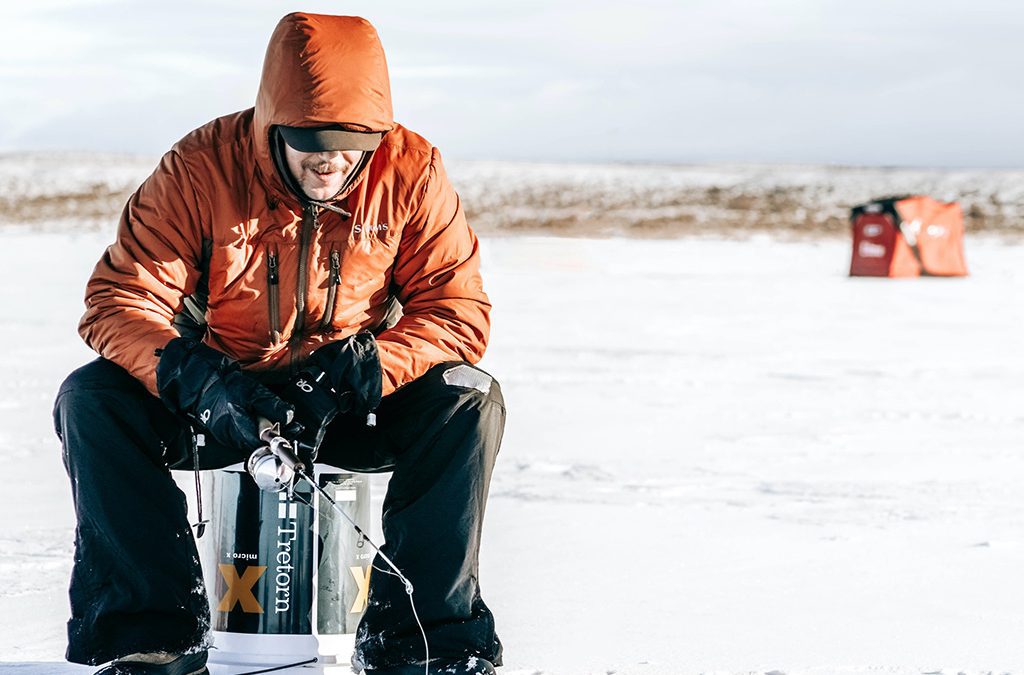As the weather starts to cool down, many fishermen begin to wonder about the behavior of bass during the winter months. Do bass slow down in winter? Are they more difficult to catch? Understanding how bass behave during the winter season can significantly impact your fishing success. In this article, we will explore the behavior of bass during winter and try to answer the question – do bass slow down in winter?
Winter Bass Behavior
Bass behavior is largely influenced by the changing seasons. During the winter season, bass are mainly focused on survival rather than growth and reproduction. As water temperatures drop, bass metabolism slows down, resulting in a decrease in activity level.
Bass typically migrate from shallow water to deeper waters during the winter season. They prefer deep water that is between 50 and 60 degrees Fahrenheit. When the water temperature drops below this range, the bass become lethargic and feed less frequently.
The changes in water temperature, and the availability of food and oxygen, are the major factors that influence bass behavior during winter. In colder months, oxygen levels are often lower, especially in deeper waters, which can further impact the behavior of bass. Additionally, bass may change their feeding patterns during winter, opting for larger prey that allows them to conserve energy.
Do Bass Slow Down in Winter?
It is often said that bass slow down in winter, and there is evidence to support this claim. As water temperatures drop, bass metabolism decreases, resulting in a decrease in activity level. The slower metabolism means that the bass do not require as much food as they need in warmer months when their metabolism is higher.
Unlike other cold-blooded fish, bass are still active in winter. However, their movements are much slower and less frequent. They spend more time resting in a single spot, which makes them more difficult to locate when fishing.
A study conducted by the University of California (UC) revealed that bass reduce their movements by 80% in water temperatures between 45 and 50 degrees Fahrenheit. However, bass still continue to move around in search of food, especially during warmer winter days.
Fishing Strategies for Winter Bass
Fishing for winter bass requires a different approach than fishing for bass in warmer months. Understanding bass behavior during winter is essential to employ successful strategies.
Know the Preferred Locations of Winter Bass
Bass prefer deeper water that is between 50 and 60 degrees Fahrenheit during winter. Fishermen need to locate spots with the right water temperature to find bass. Additionally, bass tend to group together during the winter months, making it easier to locate active fish.
If your favorite fishing spot has become too cold for bass, try exploring new areas that might provide favorable conditions to catch winter bass. These areas may include spillways, bridges, and deep holes.
Choose the Right Bait and Equipment
Knowing the right bait and equipment to use during winter is crucial for successful bass fishing. Since bass require less food during winter, they become more selective about the prey they attack. Therefore, fishermen should choose larger and slow-moving baits, such as jigs or soft plastics, which mimic the bass’s natural prey.
Moreover, heavy equipment, such as line and rods, will slow down your movements, making it more difficult for the bass to detect your bait. Lighter lines and rods, around 6-8 lbs, are highly recommended for winter bass fishing.
Employ Slow Fishing Techniques
Fishing techniques that work in warmer months may not be as effective during winter. Experienced fishermen suggest employing slow fishing techniques that allow the bait to sink slowly towards the bottom, where bass rest.
Dragging texas-rigged baits, or suspending jerk baits in deep waters, are some of the best techniques used to catch winter bass. Moving your bait slowly and subtly through the water can prove to be highly effective.
Things to Consider When Winter Bass Fishing
There are a few things that fishermen should keep in mind when fishing for winter bass.
Firstly, the impact of winter conditions on the body of water must be taken into consideration. Winter storms, snow, and ice all have a significant impact on the fish’s location and behavior. Research the body of water to ensure a successful winter bass fishing trip.
Secondly, fishermen should be prepared for cold weather. Dress appropriately for the weather to avoid hypothermia, and bring warm clothing and hand warmers to stay comfortable.
Lastly, be patient! Winter fishing requires more patience than fishing during warmer months. Fishermen may have to wait longer between bites or try different areas before finding active winter bass.
Conclusion
In conclusion, bass do slow down in winter. Bass behavior during the winter season is highly influenced by the changing water temperature and availability of food and oxygen. Although they do not become entirely dormant during winter, bass exhibit decreased activity levels, making them more challenging to catch.
However, successful winter bass fishing can still be achieved by employing the right strategies. Knowing your water’s fish population, using proper equipment, choosing the right bait, and employing slow fishing techniques are all key elements to a successful winter bass fishing trip. Winter fishing may require more patience and effort than fishing during warm months, but it can be equally rewarding.

